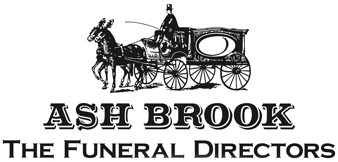Helpful Guidance
Following the death of a loved one, you will need to register the death and here we can offer guidance on who needs to be contacted following a bereavement.
Registering the Death
All deaths occurring in England and Wales must be registered within 5 days of the death unless the coroner’s involvement prevents this. Registering the death should take place in the district where the death occurred.
If you are unable to attend where the death occurred, then you may make a declaration of death at any register office in England and Wales. The declaration will be sent to the correct register office and the death certificates, together with the authority (allowing us to proceed), will be sent to you by post. Please note, this method of registration relies heavily on the postal service and others which may result in a delay to the arrangements.
In certain circumstances, the death may be referred to the coroner, either by the doctor or the registrar of deaths. The coroner will decide whether to carry out a post-mortem or hold an inquest, or they may decide that no action is required if they are satisfied as to the cause of death.
Almost all register offices operate an appointment only system. If you wish, we can make the appointment on your behalf.
If you believe there may be a will, it is important to check to see if the person left any specific instructions/wishes with regards to the funeral and whether they wanted to be interred or cremated before making any arrangements with us.
Do you need a Grant of Probate?
When a person dies, someone has to deal with their estate by collecting in all the money, paying any debts and distributing the estate to those entitled to it. The term ‘Probate’ often means the issuing of a legal document to one or more people authorising them to do this.
The probate registry issues the document which is called a ‘grant of representation.’ There are three types of grant:
- Probate issued to one or more of the executors (e.g. people named in the will to deal with the estate)
- Letters of Administration issued when there is a will but no executor has been named, or when the executors are unable to apply or do not wish to be involved in dealing with the Estate
- Letters of Administration issued when the deceased has not made a will or the will is not valid
What is its purpose?
A grant is a document issued by the Court which enables the person/s named to deal with assets and belongings of the deceased. It allows money in banks and building societies to be collected, property to be sold or transferred and debtors to be paid.
Is a Grant needed in all cases?
No. Certain organisations may release monies held if the amount is small. Also, where a joint bank or building society account is held, production of a death certificate may be sufficient for the monies to be transferred to the joint holder. Where a property is held in joint names and is passed automatically to the other joint owner, it may not be necessary to obtain a grant.
However, if the above circumstances do not apply or if the organisation concerned informs you that a grant is required, please contact the probate registry for further information.
Winchester District Probate Registry
4th Floor Cromwell House
Andover Road
Winchester
SO23 7EW
Telephone 01962 897029
Staff at Probate Registries can offer procedural guidance on how to obtain a grant but they cannot provide legal advice.
Note: Form PA2- see below
‘How to Obtain Probate – A guide for the applicant without a Solicitor’– forms part of the package provided to applicants when applying for probate from the above address. It is also available on the Court service internet site. The website link is www.gov.uk
Probate and Inheritance Tax Helpline 0300 123 107
Who to Notify After a Bereavement
This list will assist you in completing the necessary tasks that need to be undertaken, following a loved ones’ passing.
- Contact the deceased’s solicitor regarding the will. It is important to ascertain the contents of the will as it may contain instructions regarding the funeral arrangements
- Contact the deceased’s employer or professional association together with the Inland Revenue
- Inform Local Government; cancel housing/tax benefits/Social Services
- Social Security: cancel any direct payments into bank accounts etc
- Contact banks/building societies/credit card companies etc. (joint accounts require change of name)
- Car insurance: you are not legally insured to drive if the policy is in the deceased’s name
- DVLA to return driving licence, cancel or return car tax, change car registration documents
- Contact pension providers, investment and life insurance companies, and mortgage providers
- Premium bonds are not transferable; the Post Office will provide you with a form to submit to the Bonds and Stock Office
- Inform utility companies if accounts are held in the deceased’s name and TV/internet companies
- Re-direct post via the Royal Mail (a small charge is made for this service)
- Return passport to the UK Identity and Passport Service
- Notify clubs, trade unions, associations, seasonal memberships for cancellation and possible refunds
- If the property is unoccupied, check it is secure and in cold weather, leave some form of heating on to prevent burst pipes. It might also be advisable to let a neighbour have a key to remove any build up of post
- If there is no will, you may wish to apply to the Probate Registry for Letters of Administration – you can do this yourself or appoint a solicitor to help you
For deaths within the County of Hampshire:
County of Hampshire
Hampshire Registration Service
Telephone
0300 555 1392
